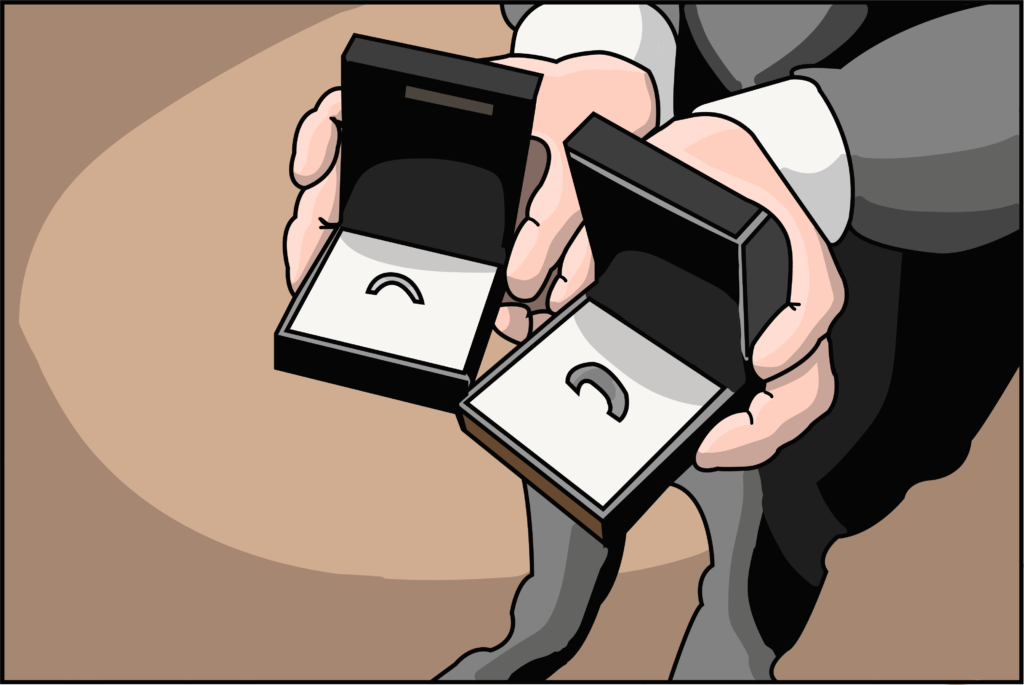Posted by Maria Droste Counseling Center on Mar 15, 2017 in Relationships

How to Stay When You Want to Flee
Relationships are hard. Maintaining a happy coexistence with another human being – even someone you care deeply about – has its challenges. Like any living thing, relationships change over time and are bound to have at least some problems.
At the positive and negative extremes (“I love him unconditionally despite what he does that annoys me” or “I cannot tolerate life with her any longer”) the decision to stay or go is generally fairly clear. In the middle, however, exists a vast expanse of gray area made up of all the reasons you should stay despite sometimes being unhappy, and all the reasons you should leave despite sometimes being happy. That is where, one might say, the rubber meets the road.
People who leave a relationship as soon as it stops being easy breezy and requires effort may have commitment phobia (also called relationship anxiety). “The causes of commitment phobia are as varied as the people who suffer from it,” writes John Grohol, Psy.D. He has found that many people with commitment phobia are reluctant to commit to a romantic relationship because of their own poor prior experiences or those they have witnessed such as their parents’ difficult divorce. Other common causes, he says, may include:
- Fear of the relationship ending without notice or signs
- An inability to determine and trust that this is the “right” relationship
- Prior unhealthy relationship (characterized by abandonment, infidelity, abuse, etc.)
- Trust issues associated with others one has been close to
- Childhood trauma or abuse resulting in unmet childhood needs or attachment issues
- Growing up amid complicated family dynamics
Grohol explains that people with commitment phobia typically want to be in a long-term relationship, but their anxiety overtakes that desire. For some, he says, their fear prevents them from getting involved at all. Others may commit at first, but only stay in the relationship for days or weeks. (Grohol, 2015)
When a relationship becomes difficult (however we define that), we are often tempted to blame ourselves, our partner, or both of us as a couple, and doing so gives us an excuse to not do the work that relationships require, writes Linda and Charlie Bloom, authors of several books on making love last. For some, that means starting new relationships, thinking each time that this one will be different (until it isn’t) or just avoiding relationships altogether. Breaking that cycle, however, involves doing the work. The Blooms say this includes:
- Accepting responsibility for our own happiness and wellbeing, holding ourselves accountable, and acknowledging our ability to enact change. Letting others off the hook and letting go of the idea that someone else is responsible for our feelings.
- Forgiving those who have disappointed us, and forgiving ourselves for our mistakes and poor choices.
- Becoming more openhearted, while providing our own security and self-care.
- Making and keeping a commitment to our own integrity.
- Assessing our values and living what we say matters.
- Having patience and trusting the process, which is a lifelong path.
(Bloom & Bloom, 2012)
Many of us have bought in to a number of relationship myths that actually make cultivating a strong relationship that lasts more difficult, if not impossible. Here are a few common ones.
A good relationship means you don’t have to work at it.
Good relationships may seem effortless, but they do require attention. Lisa Blum, Psy.D, explains that as long as both partners are trying and you see positive changes being made, that’s a good sign. Problems arise when you are unhappy more than you are happy, when bad patches last long enough to feel normal, or when only one partner is making all the effort.
He/She should know how I feel.
Expecting your partner to be a mind reader is unfair and unrealistic. A better measure, Blum says, is whether your partner actually listens to your words when you communicate your feelings.
If you’re truly in love, passion will never fade.
Passion ebbs and flows and is not necessarily an indication that your relationship is in trouble. Blum says that daily routines can be the culprit and suggests couples find ways to create time for each other.
Fights ruin relationships.
“Fights can be really healthy, and an important form of communication and clearing the air,” says Blum, adding that what ruins relationships is not resolving your fights. How you fight matters, too, she says. Showing contempt for your partner through superiority, criticism, accusations, or insults is unproductive. Productive arguments include a mutual decision about how to manage the disagreement.
(Tartakovsky, Blum, 2016)
Another common myth is that couples therapy is only for relationships that are in trouble. While people often wait until they have been suffering for a long time to try therapy, therapy can be more effective at the first signs of conflict. It is easier to address what is happening and develop skills early on, before negative patterns are ingrained and harder to change.
For more information, contact Maria Droste’s Access Center at 303-867-4600.
Need Help?
If you would like to speak to a therapist about this subject or about any other issue you may be experiencing, contact the Maria Droste Access Center at 303-867-4600.
Get Informative Posts like this Sent to Your Inbox
Maria Droste posts regularly on helpful mental health and wellness subjects like the one you just read. We send these out in our free monthly newsletter. Subscribe today and get informative reads like this sent straight to your inbox.
Sources:
Grohol, J. (2015). What is Commitment Phobia & Relationship Anxiety?. Psych Central. Retrieved on March 1, 2017, from https://psychcentral.com/blog/archives/2015/01/08/what-is-commitment-phobia-relationship-anxiety/
Bloom, L. & Bloom, C. (2012) Do Relationships Really Have to Be This Hard? Psychology Today. Retrieved on March 1, 2017, from https://www.psychologytoday.com/blog/stronger-the-broken-places/201204/do-relationships-really-have-be-hard
Tartakovsky, M.,Blum, L. (2016). 8 Surprising Myths About Relationships. Psych Central. Retrieved on March 5, 2017, from https://psychcentral.com/lib/8-surprising-myths-about-relationships/
